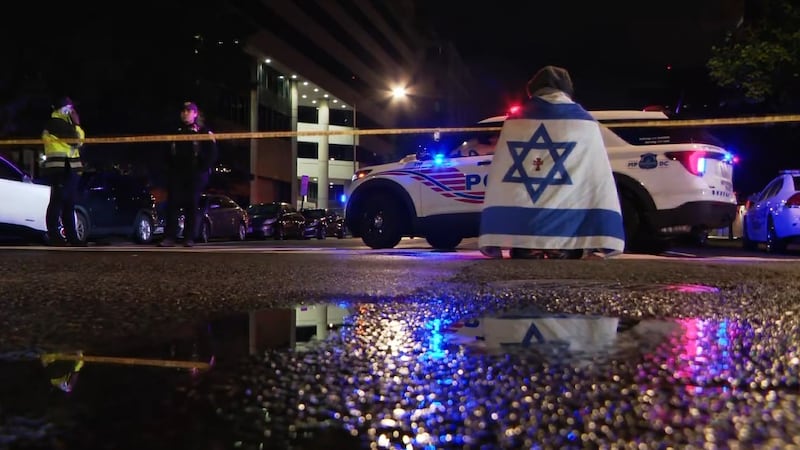2 bills become law without Kansas Gov.’s signature as 6 others vetoed
TOPEKA, Kan. (KCTV) - Two bills will become law without the Kansas Governor’s signature as concerns have been raised while six others have been vetoed.
Kansas Governor Laura Kelly has announced her decision to veto a handful of bills sent to her desk by the State Legislature. She did allow two bills - House Bill 2101 and House Bill 2020 - to become law without her signature.
“It is very unclear what problem, if any, this bill is attempting to solve,” Gov. Kelly said of House Bill 2217. “Expanding the inspector general’s authority to audit and investigate all state cash, food, and health assistance programs is completely redundant, inefficient, and a waste of taxpayer dollars.”
The Governor pointed out that the Kansas Department for Children and Families already includes a Fraud Investigations Unit that consists of experts with specific knowledge of how federal programs work and what is required by law. The bill would also remove statutory protections for participants’ data and health privacy.
“It makes no sense from a legal, policy, or fiscal standpoint to make this change,” Kelly stated.
According to the legislation’s text, it would have also allowed the inspector general to subpoena, ister oaths and execute search warrants.
As for House Bill 2291, Kelly said that while she s the bill’s intent to foster a thriving economic environment, she had concerns with the advisory committee the legislation would establish.
“Granting an advisory committee the authority to overrule existing law without proper oversight could lead to problematic decision-making and open the door to special interests doing an end-run around the legislative process,” the Governor indicated.
The text of the legislation indicated that if ed, it would have created a regulatory relief division within the Office of the Attorney General. A general regulatory sandbox program would also have been created to waive or suspend rules and regulations for participants.
However, Kelly also noted that the bill would have blocked the transparency of applications submitted for review, which further exacerbated her concerns with the role of special interests.
When discussing House Bill 2284, the Governor said that in its original form, it contained several helpful provisions. However, as amended, she felt the bill would be unworkable and open the state up to litigation.
“Additionally, this bill is a dramatic overreach by the Legislature into the role of the Executive branch, which is charged with istering and executing policy,” Kelly continued. “It also overreaches into the Judicial branch by removing the courts from the process entirely and vesting that duty squarely with the Legislature’s ad hoc “appeals committee’ — a move that calls into question the very constitutionality of this bill by denying the rights of ‘judicial review’ to those involved.”
According to the Governor, the bill would have created a haphazard procurement process that would not have mitigated conflicts of interest.
In its original form, the bill’s text indicated that it would have directed the Department of istration to adopt written policies that govern a contract to manage care organizations that provide state Medicaid services with a medical assistance program.
“I am happy to work with the Legislature next year on a clean bill that addresses some of the underlying concerns without creating all the legal, ethical and constitutional challenges of this current version of the bill,” Kelly said.
While Gov. Kelly said she believes in the duty to at-risk students, the goal of House Bill 2033 has already been achieved by the State Board of Education. In February, programs the bill s were added to the list of approved at-risk evidence-based programs. State law also already provides the Legislature the authority to find and approve these programs to the Board.
“Thus, it is the job of the Board to vet and approve at-risk programs and service providers,” Kelly noted. “If program providers want to serve at-risk students, they should work in partnership with the Board.”
The bill would have included programs and services provided by nonprofit organizations accredited by the International Multisensory Structured Language Education Council as approved at-risk educational programs.
Of Senate Bill 79, the Governor indicated that the bill was “simply wrong.” She believed it would not only have added to the difficulty of food access for Kansas families but also harmed businesses in the Sunflower State.
“The waiver required by this bill is confusing and will cause problems for our grocers and small businesses. Under the definition in that waiver, Kansas businesses would be mandated to stop accepting food assistance benefits for protein bars, trail mix, and other food products many would consider ‘healthy,’” Kelly said. “Meanwhile, items like Twix, Kit Kat, and Twizzlers would still be eligible for purchase using food assistance benefits. It’s nonsensical.”
While Kelly reiterated her for the idea that Kansans should eat healthier, she said changes to SNAP should be made at the federal level.
The legislation claimed it would have directed the Secretary for Children and Families to request a waiver from the Supplemental Nutrition Assistance Program rules to allow the state to bar the purchase of candy and soft drinks with benefits.
As she moved to Substitute for Senate Bill 29, the Governor called the legislation an unnecessary risk as it would have taken away the authority of public health officials to restrict public gatherings and issue quarantines when necessary. She believed the bill would have put the health and safety of Kansans at risk.
“While this legislation is likely motivated by the politics coming out of the recent pandemic, it would cause actual harm in efforts to mitigate current outbreaks related to measles, tuberculosis and other infectious diseases,” Kelly stated. “I will not sign legislation that hampers public health professionals’ ability to take reasonable, measured steps to limit the spread of dangerous infections and protect the health of the communities they are entrusted to serve.”
The text of the bill indicated it would have removed the authority of the county and local health officers to bar public gatherings when necessary for the control of infectious and contagious diseases - as many did during the COVID-19 pandemic.
The Governor also indicated that she has long been a er of local control as she believes local elected officials should make decisions for the communities they live in and were chosen to represent. However, she has concerns when it comes to House Bill 2101.
“I am concerned that a guaranteed income program would exacerbate the current problem of disproportionately high local property taxes,” Kelly said of her decision to allow the bill to become law without her signature.
The bill claims to bar municipalities from the adoption and implementation of a guaranteed income program.
Lastly, Kelly said that while she strongly s processes to ensure voter rolls are regularly updated for accuracy and eligibility, she is concerned that House Bill 2020 does not address possible conflicts between state and federal law.
“Specifically, this bill creates a system for regular removal of people on the voter rolls but fails to carve out protections provided under federal law and could disenfranchise eligible voters by not giving them enough time to remedy the issue,” the Governor stated.
The text of the legislation indicates it would require a quarterly report from the Director of the Division of Vehicles to list the names, addresses and alien registration numbers of certain “non-citizens” who have been issued a driver’s license.
Given her concerns, Kelly concluded that she would allow the bill to become law without her signature.
The House and Senate are both adjourned until Thursday, April 10. No further information has been released.
Copyright 2025 KCTV. All rights reserved.















